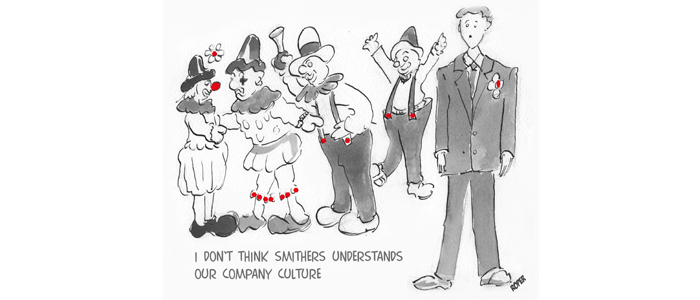According to Neil Crofts of Holos, two essential prerequisites for creating a business that delivers sustained success for all of its stakeholders, from employees to society, and that will profit and grow for years on end are ‘forward looking and outstanding leadership’ and ‘effective intentional culture’.
How effective is your business culture? Does it support the strategic aims of your business at the same time as providing an environment that people want to come and work in, and customers and suppliers want to do business with? And if it does all this, did you create it intentionally, or did it just happen?
If the latter, then your culture is vulnerable to change – in your market, your people, and the environment you operate in. If you didn’t intentionally create your culture, which is what makes your business unique, in the first place, how can you guarantee that you will be able to protect it when it is rocked by change?
Here are five essential guidelines for forward looking leaders who want to create an organisation culture that supports the growth and durability of their business, as opposed to hindering it.
Be clear what you want
Start by setting objectives and deciding how success will be measured. How will things be different? By when will that have been achieved? How will you know if you were successful?
Use three or four key values to define the new culture. Any more than this dilutes the impact.
Don’t be vague or mouth platitudes when you talk about the behaviours and attitudes you’d like to see. Be specific. Choosing ‘Trust’ as a company value isn’t hugely helpful, because while everyone agrees that Trust is ‘a good thing’, nobody knows what is expected of them. Defining trust (as a recent client did) as ‘believing in the honesty, goodwill and commitment of others, and acting consistent with that belief’ makes it very clear what is expected of people, and sets a standard against which everyone’s behaviour can be judged.
Take personal responsibility for managing the change
Changing attitudes and behaviours across a business isn’t easy. It won’t happen unless the change process is managed as rigorously as any other aspect of company performance.
The surest way to kill off a culture change programme is to position it as an HR issue. Every manager in the company will breathe a sigh of relief, because if its HR’s job, it obviously isn’t theirs. It sends a very different signal when the CEO takes personal accountability, and makes it clear that every functional Director or Divisional Head will report personally on progress in their area.
Review everything the company does against the values
Every process and policy will need to be reviewed, and many redesigned, to reflect the new culture. For example, performance should be evaluated against each of the company values, as well as conventional targets and objectives. Reward systems may need to be changed. Don’t expect real ‘Teamwork’ if bonuses are linked to individual performance.
But this isn’t just about managing people. After much soul-searching, a client company in Oxford decided that if they were really committed to a culture of ‘Integrity’, they had to include customers and suppliers. And that meant telling customers the truth about delivery dates, and paying suppliers on time.
Walk the talk
As soon as people hear about new organisation values they will want to know whether or not to take them seriously. If the Senior Management Team isn’t seen to live and breathe the values, nobody else will.
Change your behaviours where they don’t reflect the company values. If your habit of yelling at people and throwing furniture is inconsistent with your new commitment to ‘Show Respect for People’, stop shouting and throwing furniture! And when you get it wrong – and you will – apologise.
Don’t tolerate any inconsistencies
People often fail to realise that in committing to a strong, distinctive culture, they are by definition excluding other ways of doing things. At a basic level, if you are out to create a company focused on ‘Customer Service’, anyone who is regularly the subject of complaints from customers has to change, or leave.
The decisions can be much harder. A small, specialist construction company we worked with chose ‘Teamwork’ as one of their values. However, their Sales Director (who personally generated over 30% of their revenue) was a brilliant, often difficult individualist. His refusal to co-operate with colleagues was flagrantly undermining the company’s commitment to teamwork.
In the end, he was asked to leave. The CEO said it was the most difficult decision she had ever taken. It was also one of the best. That single action did more to establish the culture of teamwork they needed than anything else. And after a difficult period of transition, the company has flourished.
[callout title=”Make your organisation culture great” button=”Give us a call” link=”/contact/” buttoncolor=”white, yellow, orange, red, blue, green, gray, black, alternative-1, alternative-2, alternative-3″ target=”_blank or _self”]Establish a true culture of teamwork[/callout]
